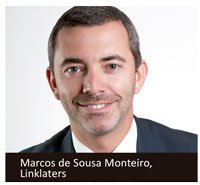Law firms struggling to resource defence cases in class actions
A growing trend for class actions in Spain – particularly in the financial sector – is piling pressure on defendant law firms, some of which lack sufficient resources to support their clients
As class actions become big business in Spain, major law firms that act for the defendants in such cases are struggling to provide the necessary resources to properly represent their clients, with the result that some are having to turn down such instructions.
Financial institutions in particular have been hit hard by the trend for class actions. This phenomenon is illustrated by the fact that firms representing plaintiffs have grown into major operations that are experiencing huge growth in revenue. For example, Arriaga Asociados – a Spanish law firm that specialises in financial sector class actions – recently saw its revenue more than triple, growing from €6.4 million in 2014 to €20.9 million in 2015.
But while the firms representing plaintiffs in class actions are flourishing, the firms representing the defendants are beginning to struggle as they feel the strain. As one partner in the Madrid office of an international firm comments, the sheer volume of claims that need to be defended in a class action means that some law firms may not have the resources to give the defendants – which are frequently banks – sufficient support to fight the case.
Firms representing defendants acknowledge that they will have to add more resources, including paralegals, to be able to handle such claims. Other partners at leading firms in Spain admit that they are becoming more inclined to not accept such work due to having insufficient resources.
Short on time
There has been a notable increase in class action lawsuits in Spain in recent years, due to the economic downturn, a reduction in investment and changes to collective contracts, lawyers say. The increase has included class actions and so-called `strictu sensu’ cases, in which a series of individual lawsuits are grouped together, and this phenomenon has tested the resources of law firms to the limit, Javier Yañez, partner at Uría Menéndez, says. He adds that one of the fundamental challenges is being able to manage personnel and material resources to adequately defend clients’ interests due to the fact the defence sometimes has to be carried out within a timeframe normally more suited to an individual case, despite the fact a multitude of claims are involved. “There is a need to analyse the underlying legal problems and adequately prepare the relevant documents to accompany the response within the timeframe dictated by the norms, which is an added difficulty,” Yañez says.
According to Yañez, one solution is for law firms to become more specialised to acquire greater knowledge of the subject. He adds that, in the short term, the entry into the Spanish market of legal services providers focused on the defence of class actions is not likely because there is not a critical mass of such lawsuits that would justify their existence. Yañez says what is more likely is the appearance of a legal services provider that assumes the role of plaintiff in class actions, due to the entry into Spain of funds looking to finance class actions. 
Juan Antonio Ruiz, partner at Cuatrecasas, Gonçalves Pereira, agrees and says class actions are common in the banking sector due to greater legislative protection of consumer rights and an increase in legal services focused on the defence of such rights on behalf of consumer associations. He adds that the challenges facing law firms include the need to coordinate the interests of multiple clients in a lawsuit and ensure compliance with the legal requirements of such cases, which, given they involve the protection of collective interests, differ from individual cases. “As lawyers, we need to give the best possible legal answers to these types of demands, which necessarily leads to greater complexity due to the need to defend the interests of a collective, within the same timeframe stipulated to respond to an individual lawsuit,” he says.
Ruiz adds that class action lawsuits substantially change the way litigation is handled. “The workload increases exponentially, which requires greater planning and precise coordination of the team in charge of the defence to guarantee efficient management of the case.” He continues: “The best way to face a class action lawsuit is by anticipating the needs of the client, foreseeing possible scenarios and moving forward with a clear strategy to solve those problems.”
Unfortunately for defendant firms, there is no indication that the trend for class actions in Spain will end anytime soon. Lawyers have highlighted the phenomenon of investment funds looking for opportunities to finance new types of class actions, with Spain having been identified as a particularly lucrative market in this context (see our Litigation & ADR Annual Report on page 38). José María Alonso, managing partner of Baker McKenzie in Spain, says firms that defend clients in such cases “will be forced to add more resources, paralegals included, to properly support such clients”.












